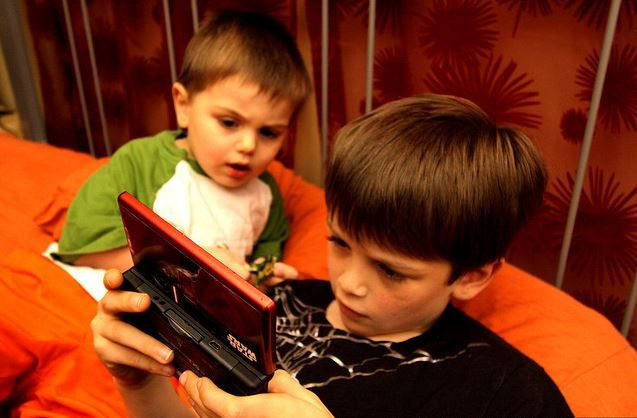Violent Video Games Alter A Child's Behavior; 8 Out Of 10 Experts Agree Media Is A Recipe For Aggression

Many parents worry what’s happening to their child while they’re playing all those video games corrupt with shooting, punching, blood, gore, strong sexual content, use of drugs, and of course, death. Researchers at Ohio State University explored the long-debated question: Do violent TV shows, movies, and video games increase aggression in children? Parents, media researchers, and pediatricians agree, and the results were published in the journal Psychology of Popular Media Culture.
“Some people claim there is no consensus about whether violent media can increase aggression in children, but this study shows that there is consensus,” the study’s lead author Brad Bushman, a communication and psychology professor at Ohio State University, said in a press release. “As in most areas of research, there is not complete agreement. But we found the overwhelming majority of media researchers, parents, and pediatricians agree that violent media is harmful to children.”
Researchers surveyed 371 media psychologists and communication scientists from three different organizations, in addition to 268 parents from across America and 92 members of the Council on Communication and Media from the American Academy of Pediatrics. Sixty-six percent of researchers, 67 percent of parents, and 90 percent of pediatrics all agreed violent video games lead to an increase in aggressive behavior among children. When a large majority of leading experts concede to the same conclusion, it’s hard not to worry when a new video game commercial comes on television and you can already picture the scores of kids jotting down the name of it on their Christmas lists to Santa or tugging at their parents’ pockets for an early birthday present.
Books aren’t a safe choice for parents nowadays, either. A little less than half agreed that violent comic books or literature will have harmful effects on children, due to their young and impressionable imaginations. Overall, 66 percent of researchers strongly agree that violent video games, movies, TV programs, and Internet sites increased aggression, and only 17 percent disagreed or strongly disagreed, while the rest went undecided.
“That means that among researchers who have an opinion, eight out of 10 agree that violent games increase aggression. That’s hardly a controversy," Bushman said. “With the general consensus about the harmful effects of media violence, it may seem surprising that some people still question the effects of violent media on aggression. One important reason is that people don’t distinguish between aggression and violence.”
Aggression And Violence: Not One In the Same
More than two-thirds of kids between 12 to 17 years old play a video game that contains violent content, and almost all of them don’t translate the violence they see into real life violence. Violence and aggression are different; the latter is a lot less harmful and worrisome than violent behavior, which drives a child to enjoy inflicting pain on another. But will violent shooting games and the like be the reason your son punched his brother in the arm when he made fun of him at dinner tonight?
According to Senior Pediatric Psychopharmacologist Dr. Raul R. Silva, childhood aggression is a symptom of many different underlying problems and is packaged and presented differently in each kid, seen much more frequently in boys who typically have more energy to dispose. Stressors, schizophrenia, autism, conduct disorders, attention deficit hyperactive disorder, and emotional illness caused by big changes in their young lives are all viable catalysts for aggression, but usually it's just kids being kids exploring the limitations of playtime.
“You cannot predict a shooting rampage just based on exposure to violent media or any other single factor,” Bushman said, who also added violent acts are rare and caused by a culmination of a dangerous and unpredictable interweaving of factors. Violent video games seldom lead to violent behavior, and the distinction between aggressive and violent behavior should be a focal point for parents of where to toe the line.
Source: Bushman B, Cruz C, and Gollwitzer M. Psychology of Popular Media Culture. 2014.
Published by Medicaldaily.com



























